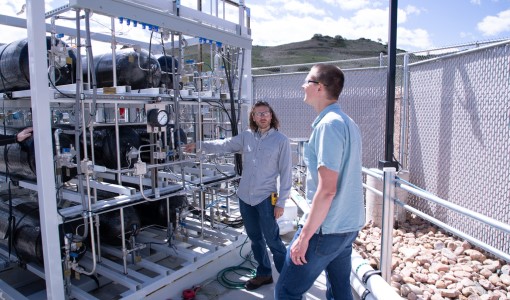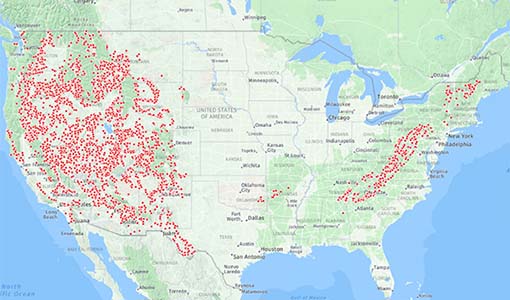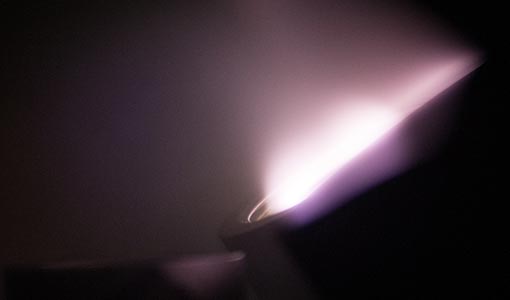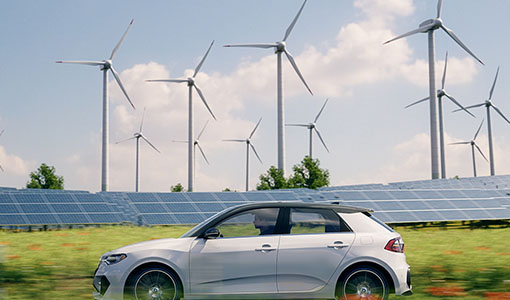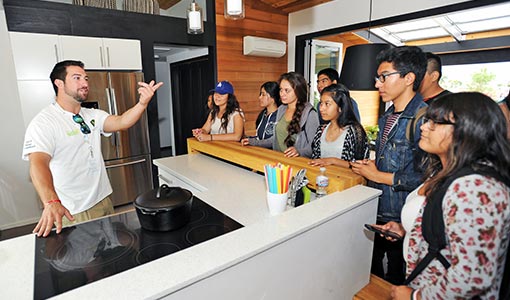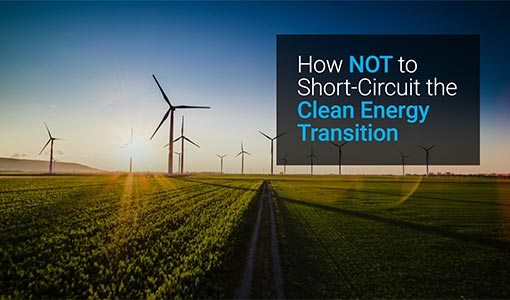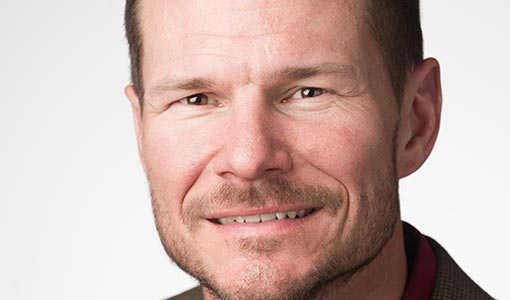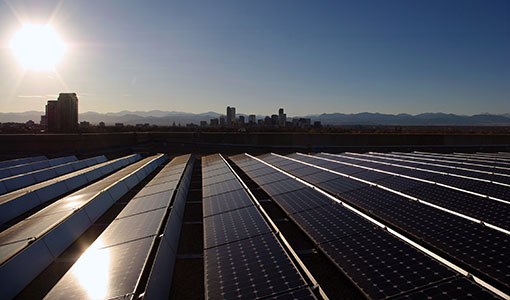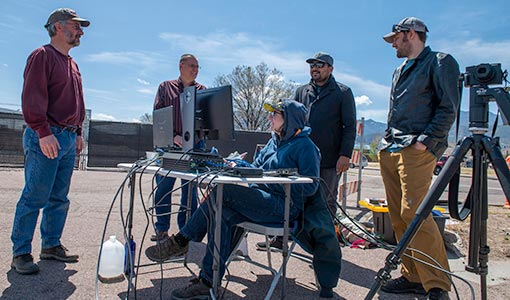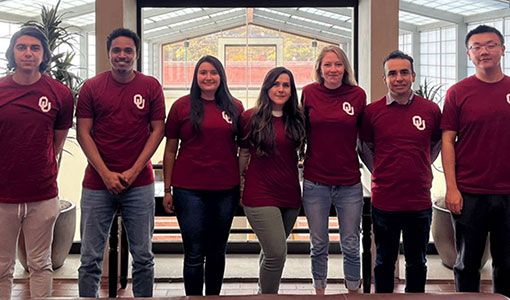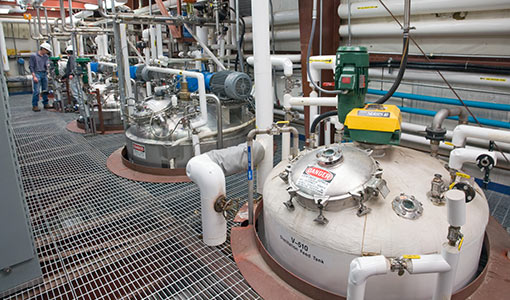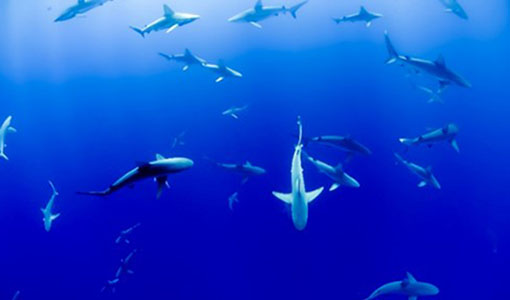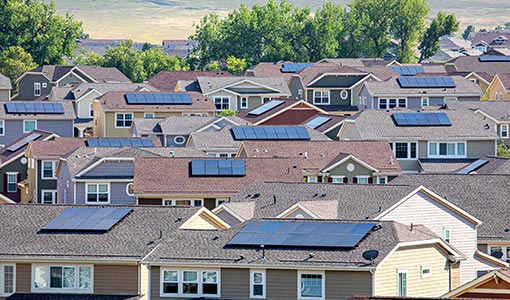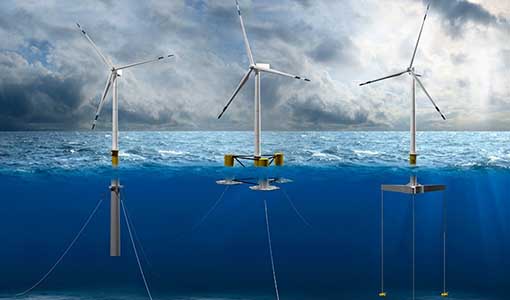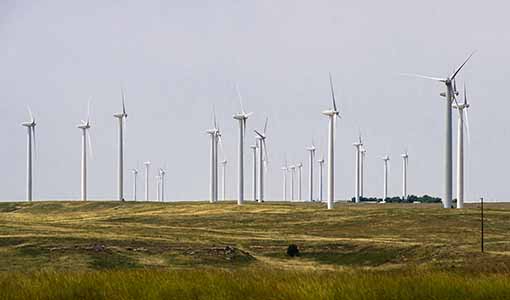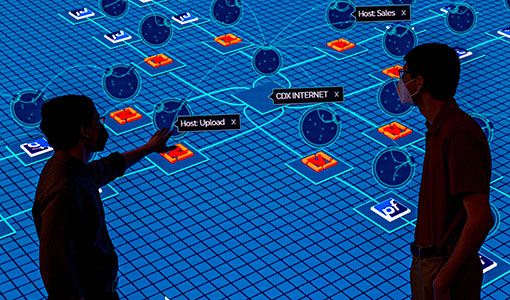June 2022
Fast Flow Future for Heavy-Duty Hydrogen Trucks
As the culmination of two years of work on the Innovating High Throughput Hydrogen Stations (IHS) Project, NREL researchers have successfully demonstrated high-flow-rate hydrogen fueling into a heavy-duty (HD) vehicle system.
How Will Hydropower Bolster a Renewable Energy World?
Energy storage is expected to play a big role in tomorrow's clean energy grid. To help guide future development of pumped storage hydropower facilities in the United States, NREL researchers developed a new interactive map and geospatial dataset to identify potential installation sites and estimate the quantity, quality, and cost of resources available at each.
Decarbonizing Windows Takes a Big Step Toward Industry Certification
In our world where windowless buildings rarely exist, the subtle significance of windows can easily be lost. Today, windows are responsible for about 10% of energy use in buildings and influence end uses that comprise 40% of building energy use.
A Decade of Transformation: What We Have Learned Since RE Futures Showed What Was Possible
Ten years after visionary renewable electricity futures study showed an 80% renewable U.S. Grid was possible, NREL experts recount how they've built on those findings in the decade since—and what is next.
NREL Senior Scientist Steve Johnston Receives American Solar Energy Society Award
NREL Senior Scientist Steve Johnston has been selected as a recipient of the 2022 American Solar Energy Society (ASES) Hoyt Clarke Hottel Award.
Solar Decathlon Expands, Bringing Zero-Energy Programs to High School Students and Mid-Career Professionals
At the DOE Solar Decathlon 2022 Competition Event, Secretary of Energy Jennifer Granholm announced the launch of two Solar Decathlon workforce development programs to bring the collegiate competition's sustainable buildings expertise, experience, and mentorship into high school classrooms and architectural studios across the country.
How Not To Short-Circuit the Clean Energy Transition
A new video and report explain why fault protection should be on grid planners' radar as the power system continues to evolve.
Jerry Davis Named Laboratory Program Manager for ARIES Research Platform and Energy Systems Integration Facility
Jerry Davis has been selected as the new Laboratory Program Manager for two of NREL's leading research capabilities: the Advanced Research on Integrated Energy Systems (ARIES) research platform and the Energy Systems Integration Facility (ESIF).
Q&A With Jordan Burns: A Community-Driven Approach to Energy Resilience
Jordan Burns is a risk and resilience researcher helping communities reach their energy goals through the DOE's Energy Transitions Initiative. She uses a community-driven approach to understand placed-based resilience solutions that can be incorporated into local strategic clean energy plans.
Renewables Become Leader in Grid Resilience
A demonstration of outage recovery using inverter-based resources is showing how renewable energy can lead the way to power system resilience.
Giving Vehicles a Safe Green Light
A surprisingly high number of auto accidents—21% of all car crashes—occur at intersections with traffic lights. While these incidents are usually caused by driver error, new technology linked to roadway infrastructure can help prevent crashes resulting from human lapses of judgment.
DOE Announces Winners of the 2022 Geothermal Collegiate Competition
Students from the University of Oklahoma took home first place and $10,000 in prize funding as part of the U.S. Department of Energy 2022 Geothermal Collegiate Competition, an annual event that prepares students to lead the next generation of geothermal energy development.
SAFFiRE Sustainable Aviation Fuel Project Earns Government-Industry Boost
With fuel prices soaring, a new government-industry partnership based at NREL plans to shift the aviation market further away from oil fields and closer to the farmlands.
May 2022
Getting in the Water With SHARKS
With SHARKS, ARPA-E and NREL could make it possible for marine energy devices to power up in rivers across the country and play a valuable role in combating the climate change crisis.
Celebrating Solar Reliability Pioneer Dick DeBlasio
Deblasio was instrumental in getting the solar photovoltaics and distributed energy industries going. Sadly, he died on April 27 at the age of 80.
Building Experts Needed To Tackle Critical Challenges for Clean Energy Economy
NREL provides technical support to the residential construction industry through its Subject Matter Experts (SME) program.
Plugging Into Offshore Wind Will Power Up California's Renewable Energy
Using novel analyses for floating wind turbines, researchers at NREL have assessed the best way to divide up the first West Coast offshore wind energy areas into leasing areas that could power 1.5 million homes, bringing California and the United States closer to their clean energy goals.
Wind Resources Expand With OpenOA Upgrade and Partner Input
NREL has released version 2.3 of its Open Operational Assessment (OpenOA) software, which helps demystify wind plant operations for wind plant operators.
NREL Work With Defense Department’s Environmental Security Technology Certification Program Accelerates Priority DOD Energy Projects
U.S. Department of Defense's ESTCP is working to identify and demonstrate the most promising, innovative, and cost-effective technologies and methods that address DOD's highest-priority environmental requirements.
Connecting the Country: Are Quick, Electrified Flights From Local Airports Possible?
Trick question: What is your nearest airport? You might think of the urban hub you always catch flights from, even if that airport is hours away.
Last Updated May 28, 2025

